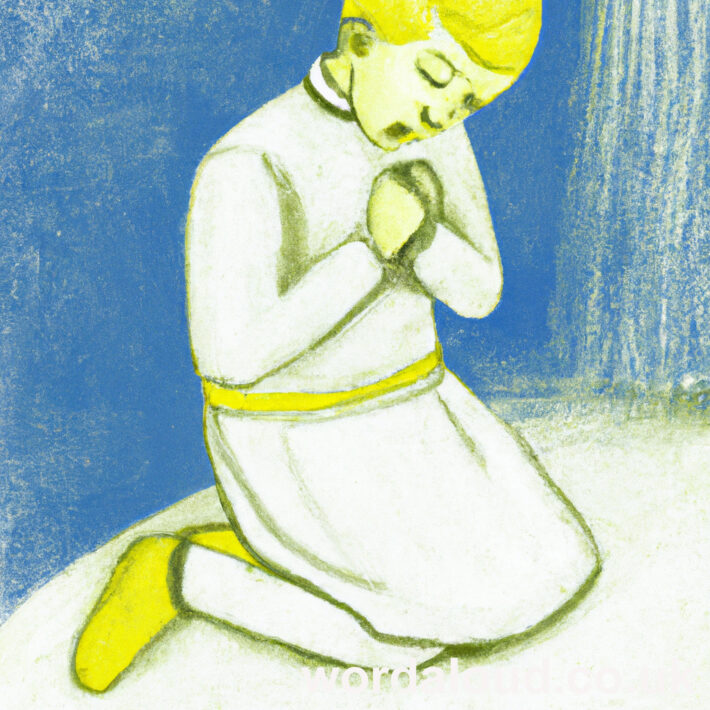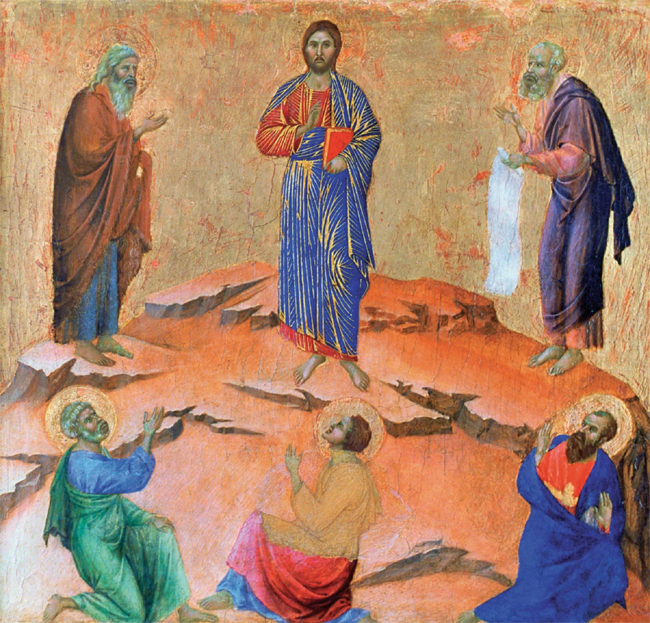Christian Art | Prayer With Jesus | Psalms | Thanksgiving For Earth’s Bounty | King David As A Boy | Audio KJV | King James Audio Bible
Psalm 65 | King James Audio Bible
YouTube: Psalm 65 | KJV | King James Version | Audio Bible | Word Aloud
Psalm 65 is a song of gratitude and praise to the Divine. In this beautiful hymn, the psalmist reflects on the majesty and mercy of God, expressing a deep sense of awe and thanksgiving for the bountiful blessings bestowed upon the earth. The psalm opens with a resounding declaration that praises are reserved for God in Zion, the sacred city, and vows made to the Almighty will be fulfilled.
The theme of prayer and divine responsiveness is central in this psalm. The psalmist acknowledges that God is the one who hears his prayers, and indeed, people from all walks of life come before God with their supplications. This recognition of God as the listener is a foundational aspect of the psalm’s spirituality, emphasizing relationship between the worshipper and the Divine.
Psalm 65 explores human frailty and sin, recognizing that iniquities prevail. The psalm offers hope in the form of divine forgiveness and cleansing of transgressions. The idea of redemption and purification permeates the psalm, portraying God as the one who forgives and restores the penitent.
A significant portion of the psalm is dedicated to the glorification of God’s creation. The psalm marvels at wonders of the natural world, with its mountains, seas, and seasons. The psalmist sees God as the masterful Creator who controls and tames unruly forces of nature. This imagery underscores belief that God’s sovereignty extends beyond human life to encompass the entire earth and seas.
The psalm expresses harmony and abundance. It rejoices in the provision of God, which includes such blessings as plentiful harvests, abundant waters and fertile lands. Imagery of the earth being enriched and watered by the ‘river of God’ conveys a profound sense of divine sustenance.

Psalm 65 | King James Audio Bible KJV | Love Revealed By Jesus Christ
Praise waiteth for thee, O God, in Sion:
And unto thee shall the vow be performed.
O thou that hearest prayer,
Unto thee shall all flesh come.
Iniquities prevail against me:
As for our transgressions, thou shalt purge them away.
Blessed is the man whom thou choosest,
And causest to approach unto thee, that he may dwell in thy courts:
We shall be satisfied with the goodness of thy house,
Even of thy holy temple.
By terrible things in righteousness wilt thou answer us,
O God of our salvation;
Who art the confidence of all the ends of the earth,
And of them that are afar off upon the sea:
Which by his strength setteth fast the mountains;
Being girded with power:
Which stilleth the noise of the seas, the noise of their waves,
And the tumult of the people.
They also that dwell in the uttermost parts are afraid at thy tokens:
Thou makest the outgoings of the morning and evening to rejoice.
Thou visitest the earth, and waterest it:
Thou greatly enrichest it with the river of God, which is full of water:
Thou preparest them corn, when thou hast so provided for it.
Thou waterest the ridges thereof abundantly:
Thou settlest the furrows thereof:
Thou makest it soft with showers:
Thou blessest the springing thereof.
Thou crownest the year with thy goodness;
And thy paths drop fatness.
They drop upon the pastures of the wilderness:
And the little hills rejoice on every side.
The pastures are clothed with flocks;
The valleys also are covered over with corn;
They shout for joy, they also sing.
Key Themes Of The Psalm For Reflection | Love Revealed By Jesus Christ
- Thanksgiving And Praise To God: The psalm expresses gratitude and admiration for God’s mercies, blessings, and answers to prayer. It highlights the importance of recognizing and giving thanks for God’s goodness.
- Divine Listening And Responsiveness To Prayers: The psalm conveys the idea that God is attentive to the prayers and supplications of the people. It reflects the belief in divine responsiveness to human cries for help and guidance.
- Acknowledgment Of Human Frailty And Sin: The psalm acknowledges the fallen nature of humanity and the reality of human sins. It highlights the need for God’s forgiveness and redemption.
- Seeking God’s Grace And Mercy: The psalmist seeks God’s grace and mercy, emphasizing the importance of divine forgiveness and guidance in life. It reflects the human desire for spiritual guidance and reconciliation.
- Marveling At The Wonders Of God’s Creation: The psalm celebrates the awe-inspiring natural world as a testament to God’s creative power. It emphasizes the grandeur and beauty of God’s creation, reflecting on the majesty of the universe.
- Recognizing God’s Power Over The Natural World: The psalm portrays God as the one who controls the forces of nature, including the seas, mountains, and cycles of day and night. It underscores God’s sovereignty over the physical world.
- Emphasis On God’s Abundant Provision, Particularly Through Rain: The psalm highlights God’s role in providing for the earth and its inhabitants, especially through the gift of rain. It underscores the divine sustenance of life.
- Celebration Of God’s Role In Creation, Sustenance, And Forgiveness: The psalm celebrates God as the Creator, Sustainer, and Forgiver. It expresses the interconnectedness of these roles in the divine plan and human existence.
- Reverence For The Divine And A Sense Of Awe: The psalm conveys a deep reverence for God and a sense of awe toward the Creator. It reflects a spiritual humility and an acknowledgment of God’s majesty and authority.








